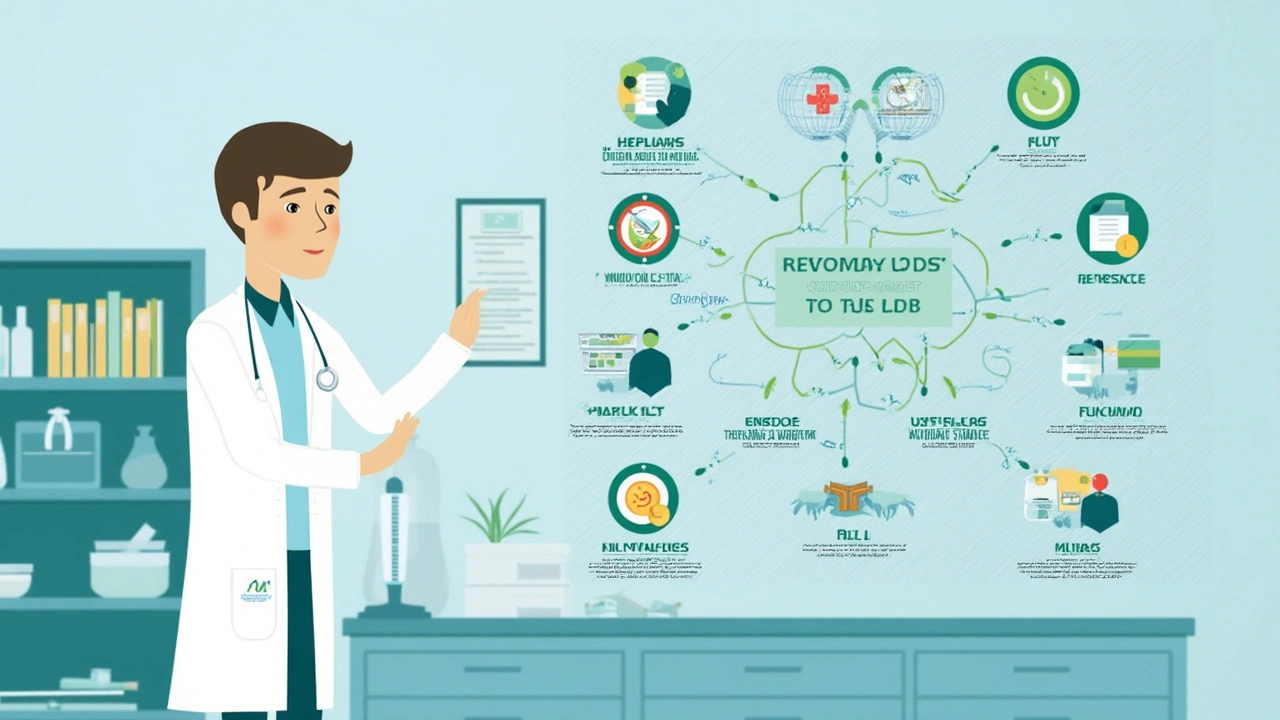Triclabendazole — What It Treats and How to Use It Safely
Triclabendazole is a prescription antiparasitic most known for treating liver fluke infections (fascioliasis) and some other fluke illnesses. If you or someone you care for was diagnosed with a fluke infection, triclabendazole is often the drug doctors reach for because it targets the worms that live in the liver and bile ducts.
How Triclabendazole Works and When It's Used
Triclabendazole kills flukes by damaging their energy systems, which makes the parasites die and get cleared by the body. It's typically used after a lab diagnosis—stool tests, blood tests, or imaging that shows fluke infection. Common reasons for treatment include persistent abdominal pain, jaundice, or confirmed exposure in areas where liver flukes are common.
Typical adult dosing used in many treatment guidelines is a single oral dose around 10 mg per kg of body weight, or sometimes two doses given close together. Exact dosing and the number of doses depend on the infection, the patient’s weight, and local medical guidance. Always follow the prescribing clinician’s instructions.
Safety, Side Effects, and Practical Tips
Most people tolerate triclabendazole well. Minor side effects can include stomach pain, nausea, headache, dizziness, and a mild fever. Some patients show temporary increases in liver enzymes after treatment—the doctor may order a follow-up blood test to check liver function.
Tell your provider if you’re pregnant, breastfeeding, or have liver disease. In many places triclabendazole is only given when benefits clearly outweigh risks. Also mention other medicines you take; while major drug interactions are uncommon, your clinician should review your medications.
If you develop severe abdominal pain, high fever, jaundice (yellow skin or eyes), or allergic reactions like rash or swelling, contact medical help right away.
Want practical steps? Get diagnosed with proper tests before seeking the drug. Ask your doctor about follow-up testing to confirm the infection cleared. Keep records of treatments and lab results—this helps if symptoms return or if you travel back to areas with flukes.
Buying tips: triclabendazole is a prescription medicine in most countries. Use licensed pharmacies or verified online pharmacies that require a prescription. Look for clear contact info, pharmacist access, and secure payment. Beware of sites selling without prescriptions or offering suspiciously low prices—those are often risky.
Affordable options may include generic versions, patient assistance programs, or government health services in endemic regions. If cost is a worry, ask your healthcare provider for safe, legal ways to lower expenses rather than risking unregulated sources.
Triclabendazole can be a very effective fix for fluke infections when used correctly. Talk to a trusted clinician, get proper tests, and use reputable pharmacies so treatment is safe and effective.
